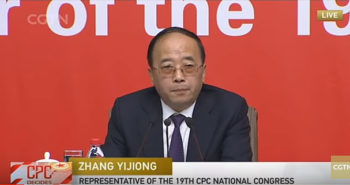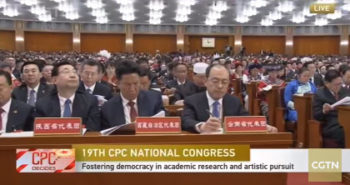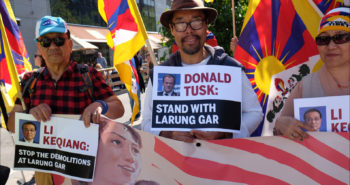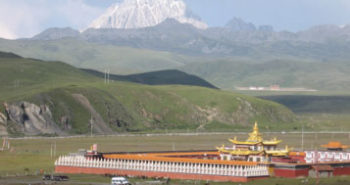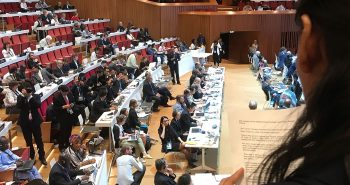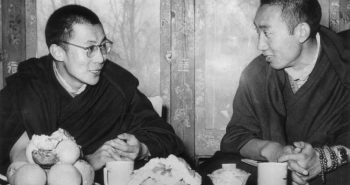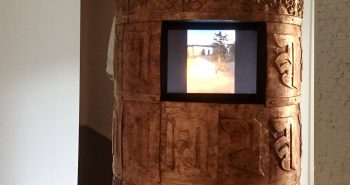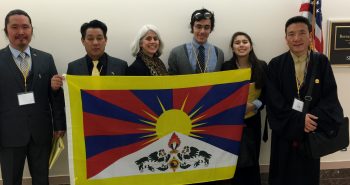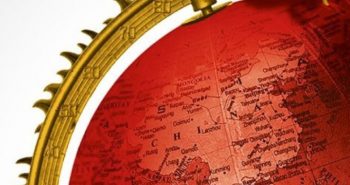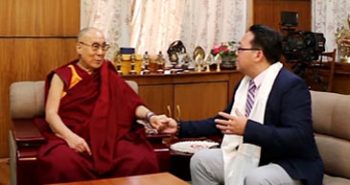As part of the events connected with the just concluded 19th Chinese Communist Party National Congress, there was a press conference on October 21, 2017 during which, Zhang Yijiong, the executive vice minister of the Central United Front Work Department, talked about the Dalai Lama and Tibet. A Phoenix TV correspondent had asked a two-part question: “Despite China’s firm opposition, some countries have been inviting him [the Dalai Lama] for a visit, and he has just concluded a visit to Europe. Will China take more steps to express such opposition? On the religious freedom in Tibet, in your...
While we await expectantly for the new lineup of the Chinese leadership after the 19th Party Congress that might happen on October 24, 2017, it might be worth our while to talk about some other issues related to the meeting; the Tibetan delegates, for instance. China’s official media said there are 33 Tibetan delegates to this Party Congress: 17 are from the Tibet Autonomous Region (with seven being female), five from the Tibetan region that is now Qinghai, three from the Tibetan area now in Sichuan, and one each from the Tibetan areas in Yunnan and Gansu.
Since I started leading ICT’s Brussels office in 2006, I have progressively witnessed the development of the Chinese government’s “divide and rule” strategy in Europe. This strategy tries to use the disparities among European member states to play them against each other, creating economic dependency as a tool for political leverage. Today, in light of the large amount of Chinese investment EU members states have received in recent years (and in particular in the framework of the 16+1, a structure of collaboration initiated by China together with 16 central and eastern European states ...
Syllables in the Mandarin language all use one of four active tones, or a fifth ‘neutral’ tone. So, what is the sixth tone? Far from being a new linguistic addition to Mandarin, the Sixth Tone is a state-market hybrid news outlet created to spread Communist Party-approved viewpoints with a bit more subtlety than they normally employ. Combined with a web-savvy design, it’s part Ministry of Truth and part Vox.com.
In Krakow last month, important decisions on the world’s most important cultural and natural landscapes were made in a politically-charged environment at the annual UNESCO World Heritage Committee meeting. A vast landscape of wetlands, wildlife and lakes on the Tibetan plateau, traditionally the domain of Tibetan nomads, was among the sites being discussed – in UNESCO terms, the Hoh Xil ‘property’ of the Chinese Communist Party government.
Today is the 28th birthday of the Panchen Lama Gedhun Choekyi Nyima, who continues to remain in detention since 1995. From being the youngest Tibetan political prisoner, he might well be the only Tibetan who grew into his teens under detention by the Chinese Government. First a recap: the Panchen Lama Gedhun Choekyi Nyima disappeared (detained by the Chinese authorities) in May 1995, when he was a six year old child, a few days after the Dalai Lama recognized him as the reincarnation of the 10th Panchen Lama.
An unflinching examination of the politics of protest in Tibet, confronting new audiences with the anguish of self-immolations in Tibet, is currently a part of an international art Bienniale in Belgium on the theme of justice, until May 21.
Here we are in the United States, far from Tibet, wondering what we can and should do. Some of us have been to Tibet or exile communities in India and Nepal, and fell in love with the culture. Some of us are followers of the Dharma. Some of us are Tibetan American immigrants or their children. Our existences are linked together, firmly or tenuously, by Tibet.
James Fallows’ recent cover article for The Atlantic, entitled “China’s Great Leap Backward,” is an important and timely piece. In it the veteran China writer describes how repression in the PRC has grown under Xi Jinping, and considers the implications for the United States. His article is especially significant because it arrives during a time of potential upheaval for America’s China policy under the incoming administration of President-elect Donald Trump, which has already deviated from long-standing diplomatic precedent by accepting a congratulatory phone call from Tsai Ing-wen, the...
I have just watched a fascinating interview with His Holiness the Dalai Lama by Qin Weiping, a US-based Chinese blogger, who visited Dharamsala in October 2016. The interview (conducted in Tibetan and Chinese) is interesting not only because His Holiness shares his thoughts on how China could become a compassionate nation, but more so because he says that such a transformation should be, and can be, led by the Chinese Communist Party. His Holiness believes that through such a transformation China has the opportunity to alter the current negative perception of Communism in the world.

